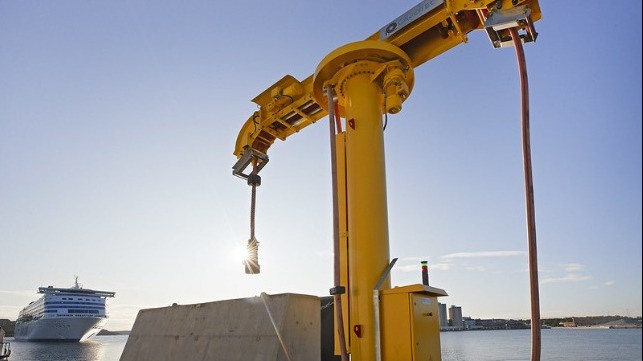Europe’s Ports and Terminals Call for Focused Shore Power Regulations

While recognizing the need for an ambitious deployment of shore power as a means to reduce the harmful emissions of ships in ports, The European Sea Ports Organization (ESPO) and the Federation of European Private Port Companies and Terminals (FEPORT) are jointly calling on regulators to focus the deployment of the technology where it makes to most operational and economic sense. In a joint statement released by the two organizations representing European port authorities and private terminal operators, they are calling for changes to the proposals for an Alternative Fuels Infrastructure Regulation (AFIR) and the FuelEU Maritime Regulation.
“To avoid a waste of limited time and public resources, the legal framework on the European level should ensure that onshore power supply is deployed at locations in the port where each installation will deliver maximal emissions reductions per Euro invested,” write the organizations.
ESPO and FEPORT are proposing an approach that focuses on shore power deployment per location (such as berths or terminals) in the port, rather than per port. They point out that the current AFIR proposal could result in the entire port needing to have shore power capabilities OPS if it receives more than a certain number of port calls by a container or passenger vessel.
“This would entail significant additional public investment for deploying OPS compared to a more focused approach,” they argue. “These investments are unlikely to be cost-efficient in relation to the emission reductions that they can deliver.”
To optimize the use of shore power as a solution to emissions at berth, ESPO and FEPORT are calling for a requirement in FuelEU Maritime for ships to use shore power when it is available in ports. For AFIR, they are calling for shore power to be prioritized in port locations where it would be the most effective in reducing emissions.
“By calculating the number of port calls based on the relevant locations in the port, it becomes possible for Member States and ports to prioritize investments in shore power where it makes the most sense in terms of environmental benefit,” said the organizations in announcing their proposed changes. “Accordingly, locations in the port that are normally not called at, or that are not intended to be called at by the ship segments required to use shore at berth, such as underused terminals, can be excluded from the requirement.”
The two organizations believe that their proposed approach would ensure that shore power is deployed where it makes the most environmental and economic sense. At the same time, they contend it would also maintain the established roles and responsibilities of the various port stakeholders.
